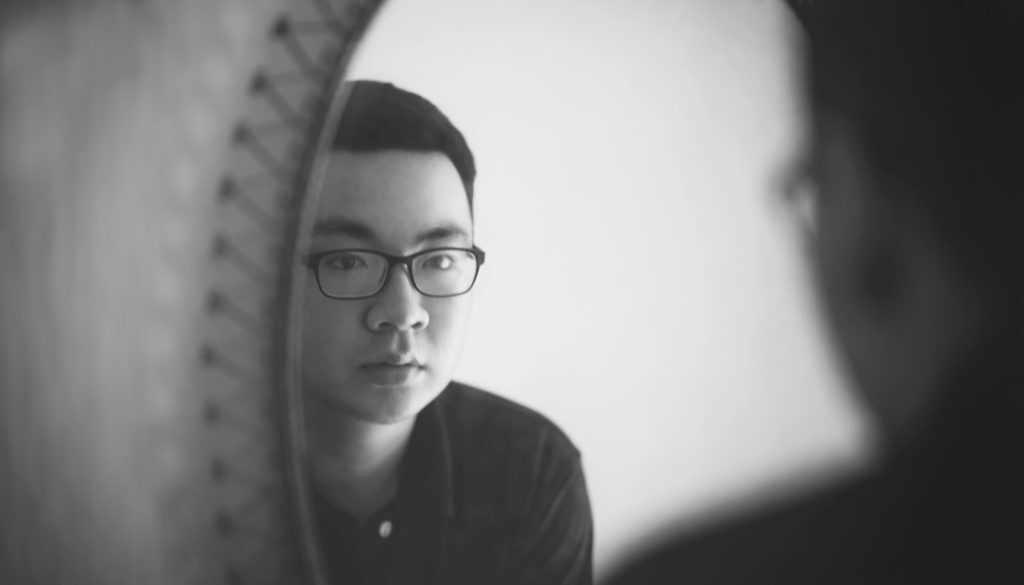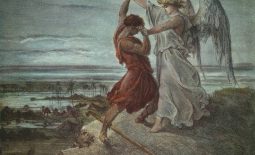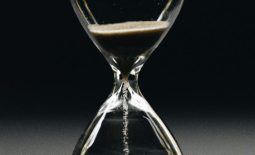Through the Looking Glass and Into the Mirror
By Rabbi Esther Hugenholtz
Sermon Bo 2019
Through the Looking Glass and Into the Mirror
This week, I’ve had the privilege of having a number of conversations centered around the importance of the Torah and how we in the Jewish community study it. Opening up the Torah – and with it, our entire interpretive tradition – to people is one of the high-lights of my work (the other, of course, being officiating at Bat Mitzvahs!)
Sometimes I physically open up the Torah; explaining that the scroll that holds the five books of Moses is written by hand by a specially trained scribe in about a year with natural ink on real parchment.
I also metaphorically open up the Torah, when people come to seek input on how to read and interpret the text and apply it to their own lives. There is no greater joy in letting the transformative words of the Torah settle into someone’s heart where they can get to shape, mold and make those words their own.
We are all called to make Torah our own. This means letting the stories speak to our own lives and bringing our lives to the Torah. Part of being a fully-fledged Jewish citizen – which is what the Bat and Bar Mitzvah process is about – is taking ownership of that legacy. It is yours, mine, ours: the province of all who journey to her.
This task, of making Torah our own can seem daunting even with the stories that speak to us; how can we tele-transport our souls to a bronze-age narrative, no matter how compelling? Yet, the undeniable sparks of humanity crackle off the text: the universal experiences of hope and loss, alienation and connection, adventure and loneliness, empathy and humanity of our Torah heroes – Abraham and Moses, Sarah and Miriam and countless more.
When we are confronted with some of the Torah’s more difficult texts, the task can seem insurmountable. The chasm between their world and ours can seem too great. Can we relate to a world where women were treated as chattel, where slavery was considered a legitimate institution and where even God can appear capricious?
One of the most difficult stories in the Torah is the story of the hardening of Pharaoh’s heart. This is the set-up: during the first five plagues of Egypt, Pharaoh hardens his heart every time Moses and Aaron beseech him to let the people go. During the last five plagues, it is God Who hardens Pharaoh’s heart.
This story has troubled me for years because it completely destabilizes the notion of free will, on which ethical monotheism stands; as Maimonides (a famous Medieval sage, philosopher and physician) wrote: ‘Free will is a great principle and a foundation of the Torah.” Jewish morality is predicated on our ability to exercise free will and moral agency. We can choose to do go or choose to do bad; it is the ultimate spiritual ‘adulting’ that was granted (or foisted upon) us since the days of Eden. Pharaoh, like any human being, has been given free will; he should be free to change his mind; to gain insight and act accordingly; to seek repentance, enact restorative justice and be granted forgiveness – a process which Judaism calls ‘t’shuvah’. However, whenever Pharaoh finds himself on the brink of doing so, God hardens Pharaoh’s heart and presses the moral reset button.
It makes God look manipulative, capricious and deceptive. Isn’t God setting up Pharaoh for failure? A few weeks ago, some congregants challenged me to answer this question.
The next week, I brought in a study sheet, where I had collated different commentaries and interpretations of these troubling passages and our congregation studied them during the Saturday morning service. It was an enlightening and healing moment of digging deeper into those layers of Torah. Many of us drew the conclusion that the story is trying to teach us deep psychological truths: about becoming morally entrenched. It is a study in stubbornness. As Maimonides argued: ‘sometimes a man’s offense is so grave that he foregoes the possibility of repentance. At first Pharaoh sinned repeatedly of his own free will, until he forfeited the capacity to repent.’ In other words; the hardening of Pharaoh’s heart is an external description of an internal process: he cannot turn back because he has turned himself into a monster.
As we sit with this, we can imagine real life scenarios of this happening; that is why it is a compelling (though philosophically inadequate) response to the problem. It lets God mostly off the hook – God was merely continuing a process that Pharaoh himself had started. When we create grooves in our soul, for good or ill, it is very hard to reroute ourselves. Of course, Pharaoh’s condition is made all the more poignant due to his trappings of power. Pharaoh operates as a god. He has untrammeled, unlimited power. He is enabled by yes-men and failed to be held to account. Parashat Bo, this week’s portion, opens with a brief but cutting analysis of that systemic power: ‘ki ani hichbadeti et libo v’et lev avadav.’ – ‘for I have hardened Pharaoh’s heart and the hearts of his courtiers.’ (Ex. 10:1). If anything, this story is not just a study in stubbornness but a lesson in the moral limitations of a system that accords excessive power to one (or a small number of) individuals. To put it in modern language: Pharaoh lacked ‘checks and balances.’
It is the task of the Torah to confront power and question it – both three thousand years ago and today. Each of us can think of examples where that may be the case. However, I would like us to dig a little deeper yet and not fall into the well-trod ways of deflecting responsibility and making this a story about others instead of ourselves. The Torah wants to hold Pharaoh to account, for sure, and does so, as Mya will teach us tomorrow, in dramatic and earth-shattering ways. But the Torah asks us an even more difficult question too: in which ways is each and everyone of us a Pharaoh?
All of us have hardened our hearts.
Sometimes it’s a survival strategy. Could we let the misery of the world overwhelm us if we would allow ourselves to feel all? A surgeon needs to steel her nerves in the operating theater; a soldier does the same in the line of fire. It is a natural impulse to care for those near us and to shut out the outcry of the world because it is too much to bear. Still, the Torah asks us to consider softening and circumcising our hearts, ears and lips; to dismantle our own toxic sense of power. Perhaps much of human conflict as well as its resolution can be plotted on the axis of the hardness or softness of our hearts. The charge for us to feel, to love, to care for those near to us as in our communities well as those afar in foreign lands and the ability to listen to those who disagree with and question the truths that are comfortable to us is a daring one in today’s world. An unrelentingly painful one. But it is an essential one – the very thing that makes us human and that makes us responsible; the very purpose of the Torah’s foundation of free will.
It is not cynicism and callousness that makes someone an adult; it is the ability and wisdom to bring both softness and strength, compassion and discipline to any situation. The Torah is both our looking glass into the human condition and the mirror of our own; this is its great gift. As we wrestle with her stories of Pharaoh and Moses, of cruelty and bravery, vulnerability and power, we know that we are engaged in holy work that spans continents and millennia.
May we bless every coming generation of Jews and of all human beings to drink from this fount of life and pass on its brimming cup to all generations not yet born.




